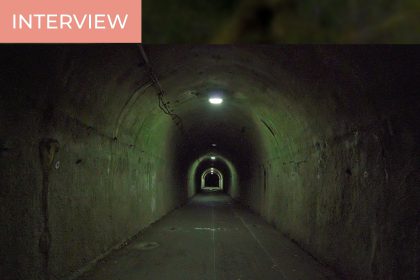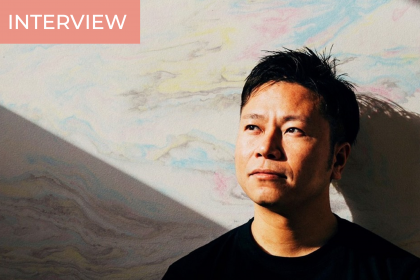Learning Japanese is equal parts experimentation, practice, and application. In previous articles, I’ve shared how my colleagues and I study the language. Ever curious, I wanted to expand the conversation and find out how members of my social and professional circles tackled Japanese. So, I ended up taking a Tribe of Mentors approach by interviewing Japanese learners, residing locally and abroad, and sharing their stories with you.
Whether you’re just getting started or trying to achieve the highest level of the JLPT (Japanese Language Proficiency Test), you’ll find plenty of useful tips and resources in this article from those who have been immersed in Japanese for years.
Thomas Wayne Adams Jr.
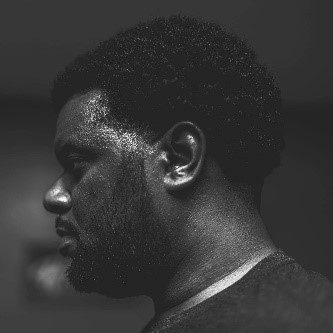
Occupation: video editor/motion graphics
Company: independent contractor
Country of residence: U.S.A.
Current Japanese level: advanced
How long did it take to reach your current level of Japanese proficiency?
It took me about four years.
How did you learn Japanese?
Before moving to Japan I had studied for about five months using the Genki textbook. I moved to Japan pre-smartphone era, so all I had was a flip phone and my coworkers to help me with Japanese. When I eventually got a Japanese girlfriend, my speaking got much better! But, then my speech sounded feminine. After spending more time with male DJ friends, I quickly started to sound more masculine.
What advice do you have for Japanese learners?
I spent all of my free time in Japan listening to something Japanese. I’d go to sleep with the TV tuned to the news and then set an off and on timer. I’d then try to mimic the way people would say certain words, and I started getting compliments on my pronunciation. Most importantly, don’t be shy! Find someone to practice with and just speak a lot. But more importantly, listen.
Manjul Agrawal
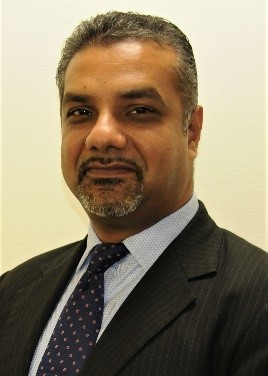
Occupation: general manager, Global Advisory Services
Company: HLS Global Co., Ltd.
Country of residence: Japan
Current Japanese level: pre-advanced
How long did it take to reach your current level of Japanese proficiency?
I have been living in Japan for 19 years, and the learning curve is always constant.
How did you learn Japanese?
I have not really taken any formal lessons and that has definitely slowed down the learning process. I did take part-time lessons during my first year in Japan, which really helped me pick up the basics of the language. My Japanese teacher worked with me using the textbook series titled Japanese for Busy People.
Since it was the pre-smartphone era, we didn’t have any apps at the time. I always used to carry English-Japanese and Japanese-English paperback dictionaries with me. They not only helped in communicating with others, but they were also a great learning tool as well.
Since my first job here was with a local company based in Yokohama, all my colleagues, managers, and clients were Japanese. That gave me an opportunity to completely immerse myself in the Japanese ecosystem, professionally as well as socially. I used to take a lot of notes in romaji, and this is where I started developing my Japanese language skills, especially for daily interactions. It also helped me understand and overcome the various nuances of Japanese business culture with ease.
Since my early exposure to the Japanese language was in a professional setting, I started becoming comfortable with keigo, and that has definitely helped in dealing with Japanese clients. I used to also listen to a lot of Japanese radio and watch Japanese movies with English subtitles.
What advice do you have for Japanese learners? In hindsight, I should have continued to take advanced language lessons, especially to improve my kanji skills. If you have the time and opportunity, definitely join formal Japanese language lessons, especially to hone your kanji skills. Build your vocabulary and always take note of new words so that you can look them up later. Develop a social circle with Japanese colleagues and friends. And, don’t hold back in practicing your Japanese language skills at every opportunity you get.
Nick Godwin
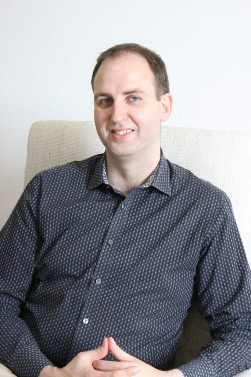
Occupation: English language coach/course creator
Company: Bylingua
Country of residence: Japan
Current Japanese level: advanced
Additional details: JLPT N2 (approaching N1)
How long did it take to reach your current level of Japanese proficiency?
It took six years while living in Japan.
How did you learn Japanese?
I used a multi-tool approach to learning Japanese, starting with textbooks. I used Genki I and II, the Kanzen Master series, and books for listening, kanji training, and shadowing. I worked with tutors only for speaking practice.
I don’t tend to use apps very much as I see them as more of a supplementary study aid rather than the main focus, despite how they tend to be advertised. However, I have been getting a lot of value out of reviewing and studying kanji through Wanikani in the last few months.
But with all of that being said, nothing beats good old-fashioned speaking practice—not just with teachers but out in the wild. Thank you nomunication [a combination of the Japanese word for drinking and communication]. I find it vitally important to push yourself into these challenging situations as early as possible so that you can both get over the fear of speaking Japanese, and also put what you’ve learned to the test.
Most people seem to believe that you’ll learn a language through osmosis simply by being here. While that may help with listening, and to a certain degree vocabulary, the real benefit comes from taking advantage of the opportunity to interact with native speakers on a daily basis—even as a beginner. This really starts to open up more doors to the culture, as the language tends to stand as a barrier to getting deeper cultural experiences in a lot of cases.
What advice do you have for Japanese learners?
The most important thing I’d recommend is to identify your preferred way of learning. There are so many apps, websites, textbooks, and courses out there, and it can be a bit overwhelming before you even get started with the language itself. Your goals, interests, and your level of comfort with discomfort (making mistakes, striking up conversations with strangers, etc.) could have a big impact on what approach will suit you best. But more than anything else, get started.
Graeme Lawrence

Occupation: translator/interpreter
Company: Graeme Lawrence Japanese Translations
Country of residence: U.K.
Current Japanese level: advanced
Additional details: JLPT N1
How long did it take to reach your current level of Japanese proficiency?
It took 30 years! (Actually, I passed JLPT Level 1 after eight years of study.)
How did you learn Japanese?
I started with a Linguaphone audio-lingual course (30 minutes, twice a day), supplemented by any available “teach yourself” books. I also took evening classes at community centers. Then, I joined a Japanese company in London. After four years, I moved to Japan to enter a two-year, full-time advanced Japanese course (preparation for taking Japanese university entrance exams). I passed JLPT Level 1, and then I studied for four years in Japanese at the University of Shizuoka. I’ve been involved in Japanese-speaking roles since graduating in 1999. I passed JLPT Level 1 (now known as N1) again in 2018, and was awarded first prize at the SOAS/JETRO Business Japanese Speech Contest (Sir Peter Parker Awards) in 2019. I’m a strong advocate of the audio-lingual method, so these days my practice materials are podcasts and YouTube videos. I also believe the AnkiApp is an effective method for learning and retaining vocabulary.
What advice do you have for Japanese learners?
Get involved in as many different situations that give you exposure to Japanese as possible. If your aim is to use Japanese in the workplace, that should include all kinds of business meetings. Also, learn something you are really interested in through Japanese—a sport, hobby, or an academic subject. When you learn a new word, use it as soon as possible. Practice “whispering,” by playing a podcast at half-speed, repeating what the speaker is saying, and then increasing the speed.
Caylon Neely
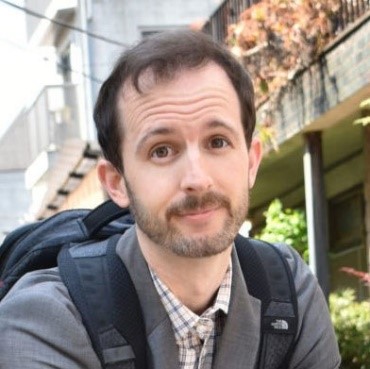
Occupation: international sales and marketing
Company: Davey Japan
Country of residence: Japan
Current Japanese level: intermediate
How long did it take to reach your current level of Japanese proficiency?
It took six years.
How did you learn Japanese?
I started with some of the typical textbooks (Genki, Minna No Nihongo, etc.) and also took lessons taught by volunteers in my city. Meeting other foreigners who didn’t speak my native language helped a lot with practicing. There was less stress in making mistakes since we were all learning together. I also learned more about my interests, like reading car blogs and translating content related to the automotive industry.
What advice do you have for Japanese learners?
Just keep at it and don’t take it too seriously. You can learn more if you find something you’re interested in to help motivate you to continue reading and studying. The journey never stops, so enjoy it.
Clifford Robbins

Occupation: personal banker
Company: HSBC Bank, N.A.
Country of residence: U.S.A.
Current Japanese level: intermediate
How long did it take to reach your current level of Japanese proficiency?
It took me four years total, including two years of intense study.
How did you learn Japanese?
For the first two years, I took lessons with an instructor using the first two volumes of Minna No Nihongo, which were useful for providing foundational grammar for reading and speaking. The lessons were also practical for everyday life. Having an instructor also helped motivate me and we did a lot of drills, which created the muscle memory necessary for conversation. I also used the first two volumes of the Basic Kanji Book by Chieko Kano to learn 1000 kanji, which made my life a lot easier. By learning the kanji, you will learn the onyomi [Chinese reading], which will make looking up new words in a Japanese-English dictionary app a lot easier. I liked using the Aedict dictionary app.
What advice do you have for Japanese learners?
If you want to learn a lot of interesting vocabulary and phrases, rent a TV series on DVD and watch it with the Japanese subtitles on—the more grounded in everyday life the story is, the better. You will be able to pause it to take notes and re-watch as necessary. Watching the characters interact will show you how new language is used in context.
Elece Smith

Occupation: Japan Bowl assistant intern
Company: Japan-America Society of Washington DC
Country of residence: U.S.A.
Current Japanese level: pre-advanced
How long did it take to reach your current level of Japanese proficiency?
It took seven years.
How did you learn Japanese?
I started taking formal classes in high school and kept taking them all the way through college. I started taking the classes a bit on accident, but I fell in love with the language and made some really close friends through my high school’s exchange programs. My friends became my biggest motivation for continuing to learn the language. I’m still looking for solid ways to start self-studying as I get ready to return to Japan, but so far my favorite resources have been Anki, Book Walker—an online bookstore with lots of free e-books)—and NHK News Web Easy.
What advice do you have for Japanese learners?
Find people to talk to in Japanese whether it’s a language partner or a friend. Having someone to just practice regular conversation with is going to do wonders for your Japanese. Right now, I live in the U.S. so it’s been a lot harder to speak Japanese regularly. But, just having friends I can interact with on social media or attending language cafés, if I can find them, has helped keep my speaking skills intact until I can return to Japan.
Antony Tran
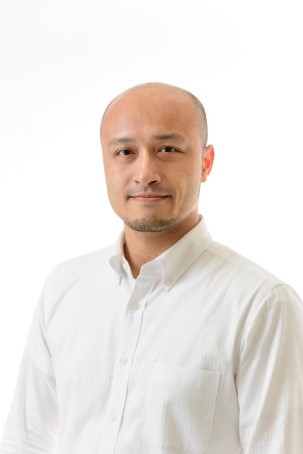
Occupation: president
Company: 株式会社LIFE.14
Country of residence: Japan
Current Japanese level: advanced
Additional Details: JLPT N1, Asia University graduate, completed Shinjuku Japanese Language Institute (SNG) program
How long did it take to reach your current level of Japanese proficiency?
I spent one year in a Japanese school, passed JLPT N1, and then spent four years enrolled in Asia University.
How did you learn Japanese?
The Japanese school program was quite intense. I started classes in the morning and finished in the early afternoon. Then I would spend the rest of the afternoon in a coffee shop or family restaurant, writing and copying Japanese text to learn kanji for four to five hours. Then, I would finally return home or meet Japanese friends.
At Japanese school we used Minna no Nihongo and a proprietary textbook. It was pretty interesting because other than the typical dialogue examples, it also included excerpts from Japanese novels and traditional literacy.
The most useful item for me was actually a kanji dictionary. At the time, French/Japanese dictionaries were expensive and they were not available used, so I went to Book Off and bought a typical secondhand English/Japanese kanji dictionary. I would divide my notepad into three vertical sections: kanji, furigana, and meaning. Then, I would copy the kanji characters there. After copying them a few hundred times each on a separate notepad, I would then fold the kanji notepad to hide parts of it and test myself to fill out the other two sections.
I didn’t use any apps or flashcards. The best method for me was just blackening notepads with ink by copying the kanji hundreds of times and memorizing them through brute force.
What advice do you have for Japanese learners?
I feel that Japanese schools are necessary to learn proper grammar and learn academic Japanese. If your goal is just to speak Japanese casually with friends, you might be able to DIY your way through everything, but to learn correct and polite Japanese, a language school is necessary. Also, I would recommend joining an intensive course. The more Japanese input you can get the faster you can learn. However, don’t be intimidated by all of the kanji characters. Just start by learning the most frequent ones. Once you learn the basic parts and combinations, you can get a good intuition for understanding kanji.
How Will You Learn Japanese?
As you can see from the interviews above, there is no single “right” way to learn Japanese. This means that you’ll have to figure out what works for you based on your goals and station in life. That being said, there are some reoccurring themes that you may want to consider as you map out your own language journey.
- Textbooks and formal education can be worthwhile investments, at least during the early stages of learning Japanese.
- Brace yourself for, but don’t be intimidated by, the challenges of learning kanji.
- Put the language to use as soon as possible, immerse yourself in audio and video, and don’t hesitate to engage with native speakers as soon as you can.
How do you plan to tackle Japanese? If you already speak the language, what are your secrets to success? Let us know via your favorite social media platform.



